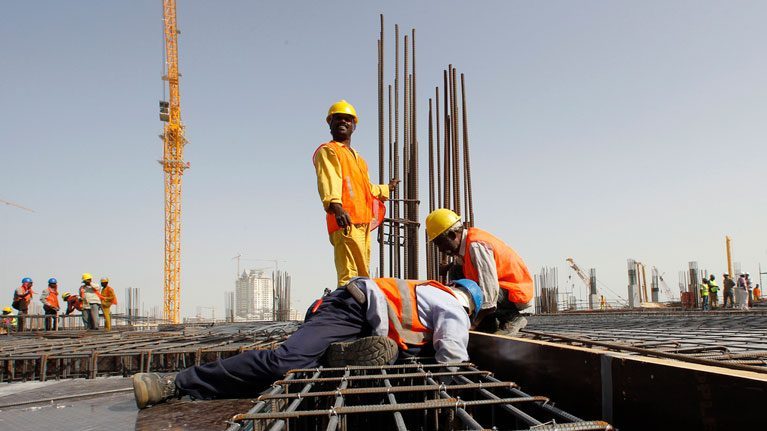Doha News spoke to both an employee and an employer in Qatar to gain more insight into what the the new labour laws mean for both sides of the spectrum.
Many expats in Qatar have welcomed the long-awaited landmark reforms to labour laws with open arms. The Ministry of Administrative Development, Labour and Social Affairs (MADLSA)’s announcement to remove the No-Objection Certificate [NOC], implementation of minimum wage in Qatar, as well as the effective dismantlement of the kafala system, marks a significant turning point for those whose fate lies at the mercy of their current employer.
Read also: Qatar’s new labour laws: After celebration must come work
Leading human rights organisations and activists have often tied the presence of the NOC in Qatar to abuse and exploitation from employers. With the newly-announced reforms, a new era has been marked for staff and employers alike. Here is what they really think.
What impact will the introduction of a non – discriminatory minimum wage and removal of the NOC requirement have on you personally?
Employee response: Maria, Security Company employee
“In the past, receiving an NOC was really difficult. At the company I’m working for now you have to wait 5 years to qualify for one. I’ve been waiting for this law to come into place for so long. In the past you would go to an interview and the barrier between you and the new job would be the NOC. This would deter you from even applying for a job in the first place as you know you wont be considered for the role without it.
“Now that this is no longer the case, as expats, we can broaden our horizons when it comes to the type of roles that we apply for. This is really great news for people thinking of coming into the country for work. I know so many people such as myself with degrees taking on jobs as cleaners and security guards because we are unable to get work that meets our qualifications. Now people can enter the country knowing there is an opportunity for progression in your career trajectory as you now have more control of your destiny.”
“It’s been a long time coming, our labour market will be more dynamic now”
“The minimum wage commitment is good too, although it’s still considerably low, it is reassuring that a standard will be set and monitored. Also, it’s extremely encouraging to know that nothing can limit me anymore and I can now think of a longer term plan for staying here knowing I can apply for a better position in time. Nobody really thought this would happen as the government has been talking about this for so many years so we can’t believe it’s finally come to fruition. I’m hopeful for the future.”
Employer’s response: Habeeb, Hospitality Manager
“We welcome the new labour laws of course and the greater balance it will bring between workers and employees. As employers this should mean we hire those who are most appropriate for the role. The laws and penalties will apply more pressure on employers to pay workers fairly, provide adequate accommodation and maintain the standards established by the ministry which provides comfort and clarity across the board.
Read also: One year jail, QR 10,000 fine for companies that fail to pay minimum wage
“Employees will also now feel more obligated to respect labour laws knowing staff have more of an incentive to give notice and resign as they wish. This also means we as employers have more opportunity to attract and retain the best talent. In turn, job satisfaction will be increased and so should staff efficiency and productivity.
The step to reform labour laws in a bid to attract more migrant workers, protect their rights and ensure their safety, is part of the human development goals of Qatar’s 2030 National Vision. To ensure compliance with the changes, the ministry is working with authorities to upgrade the Wage Protection System, strengthen the capacity of inspectors, and apply stricter penalties to companies that violate the law.
Read Also:Qatar ‘dismantles’ its Kafala system and introduces major new labour reforms
The step has been described by Yousuf Mohamed Al Othman Fakhroo, Minister of Administrative Development, Labour and Social Affairs, as a major milestone for the country.
Follow Doha News on Twitter, Instagram, Facebook and Youtube
